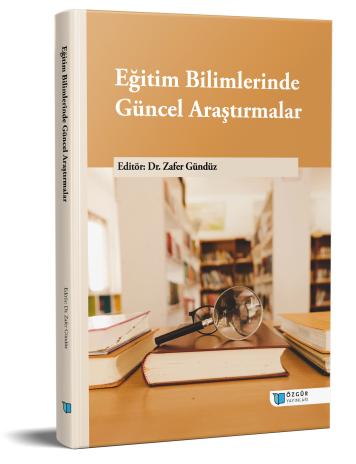
Yapay Zekâ (ChatGPT) Algoritmasının Rutin Olmayan Problem Çözme Becerilerinin İncelenmesi
Şu kitabın bölümü:
Gündüz,
Z.
(ed.)
2024.
Eğitim Bilimlerinde Güncel Araştırmalar.
Özet
Bu çalışmada “Makineler Düşünebilir mi?” sorusundan yola çıkılıp, OpenAl tarafından geliştirilen ChatGPT’nin GPT-4o (Omni) güncellemesi olan yapay zekâ (chatgpt4o) algoritmasının rutin olmayan problem çözme becerilerinin incelenmesi amaçlanmıştır. Çalışma, matematik eğitiminde yapay zekânın rolünü belirleyebilmek ve değerlendirmek açısından önem taşımaktadır. Çalışma durum çalışması desenli nitel bir araştırmadır. Veriler ChatGPT’ye sorulan 7 rutin olmayan problemden toplanmıştır. Veri analizleri Polya’nın problem çözme basamaklarına göre yapılmıştır. Araştırmanın bulgularına göre, ChatGPT’nin matematik alanında bazı sınırlılıklarla karşılaştığı, temel matematik problemlerini çok hızlı çözdüğü ve bu açıdan oldukça yetenekli olduğu fakat problemler karmaşıklaştığında, yanlışlarının ortaya çıktığı görülmüştür. ChatGPT’nin özellikle çok basamaklı veya birden çok parametre içeren problemleri çözerken oldukça zorlandığı belirlenmiştir. Rutin olmayan problem çözme sürecinde ChatGPT’nin problemi anlama, planlama yapma ve planı uygulama aşamalarında oldukça sıkıntı yaşadığı ve değerlendirme aşamasını göz ardı ettiği belirlenmiştir. Bu bağlamda matematik eğitiminde öğrencilerin bir eğitmene ihtiyaç duymadan yapay zekâ araçlarını etkin ve doğru şekilde kullanılabilmesi adına bu tip algoritmaların daha da geliştirilmesi vurgulanmaktadır.

